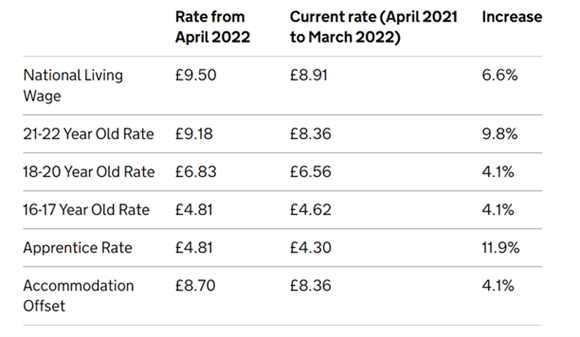New TUC analysis for our 2024 Young Workers Conference shows that more than 700,000 workers aged 18-20 across the UK are set to be left out of pocket as they are paid a lower rate of the minimum wage (writes TUC’s ALICE ARKWRIGHT).
On 1 April, the National Living Wage will go up to £11.44 per hour and be extended to workers aged 21 and over. But workers under 21 will still be paid less for the same work, simply because of their age and as many as seven in ten workers aged 18-20 could lose out.
Over 700,000 18-20 year olds are paid less than this rate and they miss out on a huge £2,438 per year, or £47 per week, at a time when the cost of living is still sky high. This is completely unfair.
Young workers have been let down time and time again by this Tory government.
They have entered the labour market at a time when insecure work has exploded. Insecure work is characterised by low pay, less training and development, uncertainty in hours and fewer employment rights.
16-24 year olds are over five times more likely to be on a zero hours contract than workers aged 25 and over.
Despite only making up 11 per cent of the total workforce, young workers make up 40 per cent of the 1.18 million workers employed on a zero hours contract.
And young women and young BME workers are more likely to be on them.
Some young workers are not even being paid – a quick search of recruitment sites finds multiple internship adverts with no mention of pay, including one asking for 3 years’ experience.
And three quarters of employees aged 16-24 miss out on key employment rights that most of us take for granted, such as protection from unfair dismissal and the right to statutory redundancy pay.
Imagine working hard in a job for nearly two years – only to be let go with no recourse.
Young people are always hit hardest during times of uncertainty, which they’ve faced time and time again in the last 14 years. Youth unemployment rose dramatically after the financial crisis and more recently during the pandemic. And we are seeing it rise again. The unemployment rate is highest for young BME and young disabled workers.
A lack of decent work, training opportunities including good quality apprenticeships and careers services are keeping unemployment rates higher than they need to be and increases the risk of longer-term unemployment, which has significant scarring effects on young people’s future living standards and wellbeing.
Since 2016/17 there has been a 37 per cent fall in the number of under 19s starting an apprenticeship. Many young people are put off them by the high incidence of low pay, low quality training and poor employment conditions.
Every day we hear stories about sexual harassment in our workplaces. 2 in 3 young women have experienced harassment at work and they are particularly at risk of harassment from third parties such as clients, customers and patients.
Last year, ministers promised to bring in a new law to put the onus on employers to keep their staff safe from this type of abuse.
But instead, they buckled to Tory backbenchers, massively watered down the legislation and let down young women across the country.
Alongside this failure to protect workers, this government have also introduced new anti-strike laws which mean a generation of young people could lose their right to strike.
We must give young people a good start at working life.
Labour’s New Deal for Working People stands in stark contrast to the Conservatives’ dire record on workers’ rights. It would:
- Ban zero-hours contracts to help end the scourge of insecure work.
- Ensure all workers get reasonable notice of any change in shifts or working time
- Give all workers day one rights on the job, scrapping qualifying time for basic rights, such as unfair dismissal, sick pay, and parental leave for all workers.
- Remove the discriminatory age bands from the minimum wage to ensure every adult worker benefits from fair pay.
- Ban unpaid internships; and
- Require employers to ensure workplaces are free from harassment, including by third parties.
And Labour have committed to reform the National Careers Service and the failed Apprenticeships Levy into a ‘Growth and Skills Levy’ that works across all nations and regions.
At Young Workers Conference, members from across our movement will debate what a better future for young people looks like and the need for this transformative New Deal.





















